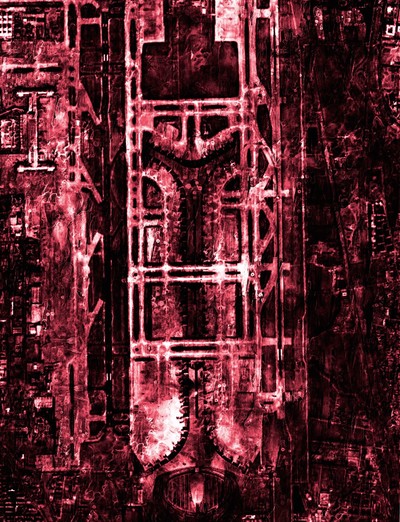Why young Chinese are swapping industry for craft.
By Hung Huang
Illustration by François Berthoud
Why young Chinese are swapping industry for craft.

You know the boom is over when being a recluse is fashionable, signalled by a new trend of young Chinese not unlike the hippies of the 1960s. They are withdrawing from the urban rat race, opting to return to a simpler life in the country.
Traditionally, the disillusioned Chinese returns to the family farm and becomes a reclusive poet or writer. However, in modern-day China, there are no family farms to return to.
In a sweeping land act in the early 1980s, the Communist government of China made it constitutional that all land belonged to the State, thus wiping out private ownership. Thirty years of urbanisation followed. In 1982, one fifth of the Chinese population lived in rural China. Today, half of the 1.4-billion population lives in cities and urban areas – 400 million people have migrated to an urban centre. For deca-des, young Chinese people dreamt about making it in the big cities – a Chinese version of the American dream. This euphoria of upward mobility climaxed with the 2008 Olympics.
And then after the Olympics, Weibo, the Chinese equivalent of Twitter, spread the bad news which had previously been suppressed by the official media. Families had been evicted from their homes to make way for land development, bulldozers tore down houses while people were still inside, thugs were hired to beat up families who refused to move off the land… To make things worse, pollution has reached its worst levels yet in urban centres. Beijing is swallowed by smog three quarters of the year.
So an alternative lifestyle is beginning to appeal to a very influential crowd of young Chinese artists, journalists and former executives in urban centres.
Traditionally, being a recluse is sexier in Chinese culture than in the West. To reject society has always signalled a higher level of cultural sophistication in Chinese culture.
This goes back thousands of years. The eighth-century poet Du Fu, lived during the decline of the glorious Tang Dynasty. After failing to become a high-court official, he withdrew to the remote Sichuan Province where it is said he built a grass hut for his family and lived as a peasant. His poetry is legendary in China, and the alleged grass hut has been maintained since the Qing Dynasty to today.
So naturally, as social problems emerge in urban centres, withdrawal from urban life is a popular Chinese solution. As a result, a number of hippy-ish communities have already developed outside major cities such as Beijing, Shanghai and Guangzhou.
Ruo Gu is in his mid-thirties and is formerly an art director for a local advertising firm in Shanghai. Five years ago, he went back to his hometown, a small village in nearby Zhejiang Province. He now spends his time making soap, rosewater and osmanthus jam.
Liu Qiyi and his wife were art students who studied pottery, and they chose to make their home in Jingdezhen – a town famous for its china. Instead of buying a modern electric oven, they decided to revive the wood-fired oven used in traditional Chinese pottery making.
Zha Zha, a former copywriter in an international advertising agency has opened Zha Zha Kitchen on the outskirts of Beijing. She specialises in using organic vegetables from her own garden and from those of her friends. There is just one table, which seats up to eight people, and she only opens on weekends.
But the thing about being a recluse in the digital era is that you are never really a recluse. All of them are connected with the world on the internet. Ruo Gu sells his products on the mega e-commerce site Taobao at innerpeace.taobao.com. Business is good.
The Lius have their own website at greatqi.com, and their products are also sold on Taobao. They are favoured by serious tea lovers who believe that wood-fired pottery is essential to the experience of enjoying a good cup of tea.
One has to fight through two hours of maddening Beijing traffic to get to Zha Zha Kitchen, but you still have to book three months in advance. Zha Zha does not have a website, but she does have a Weibo account where she shares photos of her fresh ingredients and her simple, one-table restaurant.
Young Chinese born in the 1980s and 1990s are leaning toward a slower and simpler lifestyle. Whether it will bring a cultural sea of change the way the hippies did in the 1960s is too early to say. But change is on its way.